#including the bloody author of the book quite frankly
Explore tagged Tumblr posts
Text
'I am not different. Or, what I mean is, I'm just like everybody else and truly everybody is different. If you compare yourself with others you see similarities but everybody has their own paranoia, their virtues and their defects. There is a whole world inside every person!' More than anything, this comment - one of many - was a statement of intent from Jorge Lorenzo. One of his biggest motivations in life is to differentiate himself from everybody else. He doesn't mean to be pretentious, he simply has a healthy desire to create a style that sets him apart. 'I just think he wants everybody to look up to him,' observes Cheni Martínez. Sometimes it is easy to create a persona by observing and being inspired by someone whom one already admires - and even though Jorge might not admit it out loud, the person he looks up to (as, of course, do many others) is Valentino Rossi. Interestingly, some of Jorge's first fall-outs with his father were about Valentino. Chico isn't exactly Rossi's biggest fan, but he'd always insisted that 'The Doctor' was a better rider than Biaggi. So Jorge, partly because he liked to ride like him and partly because Max was Rossi's biggest enemy, rebelled against his father and became a Biaggi fan. 'The truth is that I started siding with Biaggi to wind my dad up in the Harada era. In 1997, when Biaggi signed for Honda after Aprilia decided they didn't want to continue with him, nobody thought he could win the title because, at that time, the Honda wasn't a winning bike. So when my dad used to go on about it, I'd say, "We'll see." And Biaggi won the first race at Shah Alam by 13 seconds! But then it developed into a difficult season, with a couple of crashes, and they arrived in Barcelona with Waldmann holding the advantage. I was at my mother's house watching the television. Biaggi led the whole race until two corners from the end, when Waldmann passed him and won! I was so upset that Biaggi had lost, I cried.' Rossi himself admits in his autobiography (written in 2006 with Enrico Borghi [actually published in 2005]) that he was a Biaggi fan as a youngster. In 1993, aged 14, Valentino had a Biaggi poster on his wall. Jorge didn't quite go that far, and he had probably already realised that Rossi was the more complete rider, although he couldn't say so. If you were a Biaggi fan, you were a Biaggi fan. Nowadays he has no trouble at all admitting that Rossi is the greatest there has ever been, although he hasn't come to that decision totally on his own: there has been the occasional push in that direction over the years from people like Juanito Llansá. 'I said to him, "Jorge, if you have to look up to somebody, focus on the best ... and that's not Biaggi. You can have your own heroes, but the best of the lot is Rossi." Now he needs no convincing - especially since riding alongside him in MotoGP, on the same bike. He realises that to win so many titles on one of these things, you have to be seriously good!" Even so, Jorge can't resist his rebellious side, claiming the best race he ever saw was won by Biaggi. 'I can remember perfectly Max's first victory at Suzuka in 1998 - his first on a 500! Nobody expected him to win there, people wouldn't have bet a single dollar on Biaggi. It's a bit like in football, when you're a fan of one of the smaller teams and they play against Barça or Madrid, you don't expect them to win. But not only do they win, they win 5-1! Doohan crashed but Max was already five seconds clear. It was incredible. I liked Biaggi's character - his wheelies, his designs, his number.'
Riveras Tobia's Jorge Lorenzo: My Story So Far
#i've seen the asks.... doing the thing where i get out a bunch of Stuff that wouldn't fit in the ask but i still want to be able to link to#brr brr#max biaggi#//#mb3#//wt#you get so much stuff where it's like. my man you are overthinking this. enough#also everyone in his team like all these people are just... get rid of all of them my man!! start again good lord#including the bloody author of the book quite frankly
14 notes
·
View notes
Text
Bloodstained ice axe used to kill Trotsky emerges after decades in the shadows
On the evening of 20 August 1940, a man known as Frank Jacson called at a large house in the suburbs of Mexico City, and asked to see the ‘Old Man’ – as everyone called its celebrated resident, Leon Trotsky.
A few minutes later, the tip of the axe was buried more than two inches into Trotsky’s skull, becoming arguably the world’s most infamous murder weapon.
The axe was fleetingly displayed at a police press conference, but then disappeared for more than six decades.
Next year, however, the bloodstained relic will go on public display at Washington’s International Spy Museum, which will reopen in a new building to accommodate thousands of other artefacts that have emerged from the shadows.
The story of the ice axe is a convoluted one, befitting the extraordinary and macabre story of the Trotsky assassination. After the 1940 press conference, it was stored in a Mexico City evidence room for several years until it was checked out by a secret police officer, Alfredo Salas, who argued he wanted to preserve it for posterity. He passed it on his daughter, Ana Alicia, who kept it under her bed for 40 years until deciding to put it up for sale in 2005.
Trotsky’s grandson, Esteban Volkov, offered to give blood for a DNA test – but only on condition that Salas donated the weapon to the museum at Trotsky’s house, preserved intact from the time of the murder. Salas rejected the deal.
“I am looking for some financial benefit,” she told the Guardian at the time. “I think something as historically important at this should be worth something, no?”
The weapon was eventually bought by a US private collector, Keith Melton, a prolific author of books on the history of espionage, and a founding board member of the International Spy Museum. For the avid collector, who lives in Boca Raton, Florida, the ice axe had become something of an obsession.
“It was a search that took me 40 years, and up lots of blind allies and lots of misinformation,” Melton said. He doggedly tracked down every rumour, including one claiming the Mexican president was using it as a paperweight, until Salas emerged.
Melton would not disclose what he paid Salas for the axe. Contacted on Wednesday, Salas denied any knowledge of the sale. Trotsky’s grandson, Volkov, said he was unconcerned about the axe’s fate.
“Frankly, we are not interested in this,” he told the Guardian. “I never did the DNA test. I was not going to accept being part of a business deal for that woman.”
“It has no significance,” Volkov said. “It could have been a knife or a pistol. It doesn’t have any significance that it was a pick. And it was clumsily done, too.
“Who knows if it is the real axe?” he added.
Melton said he had authenticated the artefact beyond doubt and by several methods. There is a paper trail confirming that it passed into Salas’ possession. It bears the stamp of the Austrian manufacturer, Werkgen Fulpmes, a detail that was not made public; it is of the same dimensions as those recorded in the police report and it still bears the rust mark left by assassin’s bloody fingerprint, identical to the one in the photograph from the 1940 press conference.
Melton also believes he has also solved one of the enduring mysteries about Trotsky’s murder. Why, if the killer had an automatic pistol and a 13in dagger, did he resort to the ice axe?
Two sons of the 1917 Russian revolution, Trotsky and Joseph Stalin, were locked in rivalry that – by the nature of the two men – could only end in death.
Stalin approved a final plan for Trotsky’s assassination in 1939. It comprised two parallel plots: the first was a frontal assault, led by David Alfaro Siqueiros, the Mexican muralist who was also an agent for Stalin’s secret police, the NKVD.
On 24 May 1940 Siqueiros and a team of hitmen, dressed as policemen and soldiers, raked Trotsky’s house with more than 200 bullets, but the intended victim and his wife Natalia survived.
It seemed to be a miraculous escape, but proved to be only a short reprieve. A back-up assassination plot was already in motion.
Two years earlier, at the congress of Trotsky’s Fourth International in Paris, a lonely young New Yorker and ardent Trotskyite, Sylvia Ageloff, was introduced to a dashing 25-year-old called Jacques Mornard, supposedly the son of a Belgian diplomat.
His real name was Ramón Mercader, a Spanish communist whose mother, a loyal Stalinist, had put him up to the task of killing Trotsky.
Ageloff was persuaded to move to Mexico City to work for the Trotsky family. Mercader told her that to move with her, he would have to adopt a false identity to avoid being pursued for military service. He would go under the name of Frank Jacson (the NKVD forgers misspelled Jackson on his passport).
Ageloff accepted the explanation and the Trotsky entourage grew accustomed to see him drive her to the compound every morning.
On August 20 1940, Mercader was making his 10th visit to the house.
He told the guards he was planning to publish an article in a magazine and wanted Trotsky to look at the draft. Since the May attack, however, a new level of security had been introduced. There was a second door with a lock that was controlled from a guard tower. If Mercader was going to escape after killing Trotsky, the guards in the tower would have to let him out.
“The only chance he had was to kill him silently and then exit as a guest before they discovered the body,” Melton said.
A pistol would clearly not work in that case, and a dagger could not be guaranteed to kill Trotsky outright. By previous experience, the NKVD recommended blunt force to the back of the head to guarantee a completely silent death; to do the job Mercader stole the ice axe from his landlord’s son.
The axe is now among 5,000 artefacts that Melton is pledging to the International Spy Museum from his collection, which also includes a British one-man submarine used in second world war raids, and one of the plates used by the Nazis to forge perfect pound notes.
According to Melton, none of his treasures has quite the eerie presence of the ice axe. After letting Mercader into his study, Trotsky sat down to read his article, and the assassin attacked.
Trotsky let out a long scream and fought with his assailant until the guards arrived.
“I still remember looking through the open door and seeing my grandfather lying on the floor with his head bathed in blood and hearing him tell somebody to ‘keep the boy away, he shouldn’t see this’,” Volkov recalled on Wednesday. “I always thought that was a sign of his humanity. Even in a moment like that he was worried about me.”
Trotsky died of his wounds a little over 24 hours later in hospital. Mercader was put on trial and imprisoned for nearly 20 years.
During his time in jail, his Soviet handlers ensured he was as comfortable as possible, sending money each week and even arranging a girlfriend for him: a Mexican starlet called Roquella, who became his wife and accompanied him to Moscow after his release.
Mercader died of cancer in Cuba in 1978, with Roquella by his side. His last words are said to have been: “I hear it always. I hear the scream. I know he’s waiting for me on the other side.”
~
by Julian Borger (Washington), and Jo Tuckman (Mexico City) · 13 Sep 2017.
1 note
·
View note
Note
Unpopular Opinion: many things been said against Romione shippers/Fic demonizing Lavender to make Hermione look better But I haven't seen as much complaining about the demonizing of Dean Thomas in Hinny fics set in HBP and afterwards. I lost count how many times I have recently (and by popular Hinny authors!) read fics where Dean was demanding,pushing and trying to pressure poor Ginny into having sex/was bad at it and then being a petty and bitter towards Harry. it reeks of racism. 1/2
2/2 I mean I feel it's partly JKR fault because she went out of her way to make both Michael Corner & Dean Thomas ''horrible boyfriends' (which in Dean case is BS the only thing in canon showing friction is Dean 'pushing' Ginny through the portrait and that can be just as much about Ginny trying to be a 'strong independent woman who needs no man') but if Lavender can get sympathy in fic so should Dean, who we've seen more in the books and who came across as good decent guy.
PS, also getting tired of the biphobia i've seen in some corner of the Seamus & Pavender fandom about how Seamus-Dean-Lavender-Parvati were really gay/lesbian all along and their m/f relationship was fake. Because of apparently bisexuals didn't exist until now... [eyeroll]
I need my demarcation line.
‘ello Nonnie. Fancy a cuppa?
I guess I’ve not been reading much lately over on the other side of my Canon ship (aka Harry & Ginny) to have come across any Dean discourse much anything that could be construed as demonization. (Then again, I have been busy so...)
Damn this got long quickly. Under a cutline just out of necessity.
If I am hearing you correctly, the fic writers are choosing to paint Dean in a negative light to emphasize why Ginny would want to break it off with him before getting with Harry. I must have my head in a hole because the only one I’ve read involving Dean in the last few months was the lovely one from @floreatcastellumposts and that was how Dean and Harry interacted in DH at Shell Cottage. (I admit I do have some appreciation for the subtle angst and how troubled Harry is and how few people he trusts in his life. Been there, done that, binned the t-shirt.)
I’ll also agree completely how HBP altered the characters considerably to make the plot work, including Dean, who up ‘til they was either a wallflower or a background character turn into a problematic male character (and also one of the few Men of Color in the entire series which I find more troubling but I digress.) because of the forcing the plot to have Ginny make him redundant before getting with Harry.
Fic writers can take those small nuggets of information and expand the ideas for such (even if I find it personally squicky AF to have a 16-year-old and Under 16 having those physical relations. *shudder* (Heck, I have problems writing any Linny Under 18 fic that involves anything more than hand holding - but then that’s my Ace showing there.) but to take it to such an extreme and petty expansion of idea is, well, not my cup of tea at all. (There’s plenty I will nope right out of and walk away without commenting if there is a tag I see that will make me shudder or get squicked.) But him being petty and sullen and bitter that he did (in those fics) have s* with Ginny and was bad at it?
I wish the trope of “immediate sex god” would die a thousand papercut deaths because most guys at 16-19 can barely control themselves, much less think of the other person to make the experience a memorable one. (And let’s expand that to 15-95 but I digress.) There’s a reason it’s called wham/bam/thank you ma’am. That’s about how long it takes at that age for a guy. (oops! Showing my age there.)
I personally have zero issues with Dean and Seamus as a ship even if I will never write it (I won’t write MLM having dated 2 in the closet and one stayed in because of safety reasons) but those who do can do.
I do find that The Author did make a bit of a mess of the characterizations in book six (and I won’t even get into how there is a discord of continuity of ethnic heritage involving Lavender Brown) including how Dean was made to look like he was being possessive when for all we know, he was being kind and Ginny was in a foul mood.
But let’s hit on that PostScript which to me is the enormous hippogriff in the room.
Admittedly, Biphobia and Bise/xual erasure is prevalent and it’s upsetting, even to me, the cranky Crusty Ace Dragon. Telling someone that they aren’t what they claim (either saying their straight, really are gay but in denial, or gonna cheat and would you just pick one and stick with it? absolute rubbish.
(I’m intentionally not touching on Pansexual but I can later if need be.)
I’ve heard of plenty who get told they are likely to cheat because they are bisexual. I’ve heard plenty who get told would you make up your mind? and the ever-present, “You can’t be bi because you’re in a het relationship” like that has any bearing on who you are as a person. Hubs and I are visually in a het relationship but we’re not since we’re both Ace Spectrum (aka not-straight - him being Grey and me being Demi) but no one dares tell him such. No one dares mention that to me, either. (Especially after my repeated diatribes on gatekeeping I experienced in the 90s while wandering the alphabet wastelands.)
Frankly, it’s disgusting. And let’s talk about those who want even more bloody gatekeeping, referring to gay men and lesbian women as “Are you a Gold Star XXX?” which is the most epic bullshit I’ve read this year (and that’s taking some serious liberties but I digress.) What kind of bullshit is this, a damn purity test? Not everyone realized coming out of the womb they were gay. Some came to it later. Some stayed in the closet for safety reasons. Some stayed in because it was a no big deal otherwise.
But to tie it all in.... to invalidate the experiences of Lavender and Seamus (and Dean, too) as calling it fake is rude at best, insulting at worst. Now it could be said as performative (which plenty who aren’t straight do go through ‘til they know for certain - or at least did back in the dark ages) but then there are so many under the LGBTQIA umbrella who have had performative relationships to either fit in, hide, or trying to get another to cure them before accepting they were, in fact, not straight. But then that’s the thing about dating in your teens and early 20s - learning who you are but also what interests you and what traits you would want in a long-term partner (if that is a goal) and also what traits are a hell naw breaker for you.
But to expect some kind of irrational purity from the outset and slandering those who had to find their own way down winding roads to where they are happy and content with who they are (with gender and expression and orientation and preferences) and to have all of those experiences invalidated because you’re not pure enough for someone hateful and vicious and unworthy of someone who has probably gone through hell and back just to find their identity of who they are.
The hypocrisy of it stinks worse than I do after a full day of hiking in 25* temps.
So in short, Seamus and Lavender were never fake. Performative, maybe, but not fake. Dean and Ginny dating? Never fake. Erasing any possibility that Seamus, Dean and/or Lavender are Bisexual? That stinks highly.
Quit fetishizing MLM and WLW single-sex relationship.
4 notes
·
View notes
Text
Shadowhunters - RANT ALERT
lifeasasim replied to your photoset “Yasumi no Edo - Pt2c ( Tōkyō Dizunīrando no Hanabi) The special…��
WHY TF ARE THEY CANCELING THE SHOWWWW
Because Freeform’s too dang stupid to know not to bite the hand that feeds it, that’s why!
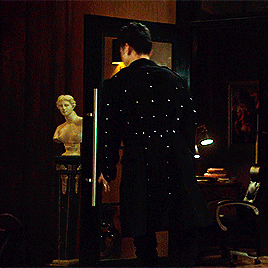
These articles (X X) are giving me ulcers. I can’t believe this is happening. I just can’t. They’re cancelling my show. We won’t get Season 4.
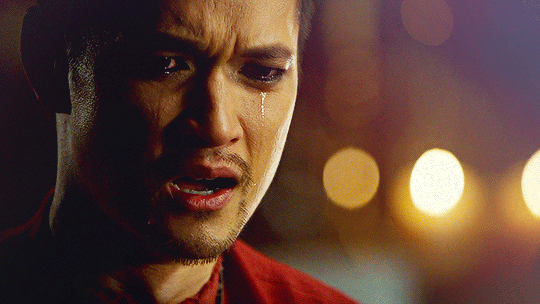
They’re stopping Season 3B at City of Heavenly Fire, and not adapting the other books. So does this mean no Malec adopting their sons? No Malec proposal? No Malec wedding? Are y’all serious right now?
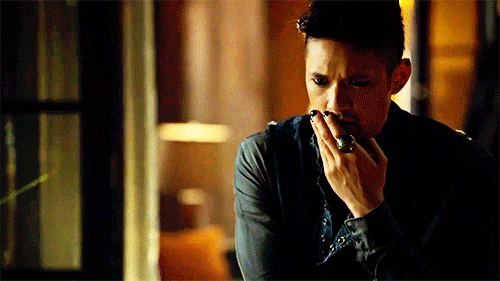
They had the nerve to push back the airing of Season 3B -- Todd & co. had originally said that it would air this August, but that tweet was deleted hella fast, and now they’re saying 3B won’t air till Spring 2019! JESUS! O_O First that long hiatus waiting for 3A, and now this!? Waiting a whole year for a show that’s gonna be cancelled right after 3B finally airs!? WTF!?
So, what am I supposed to do -- sit here and stew in my depression!?
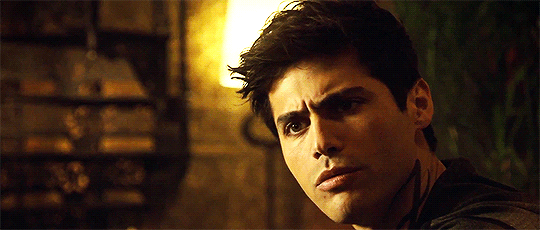
This is hell.
This is LITERAL HELL, people.
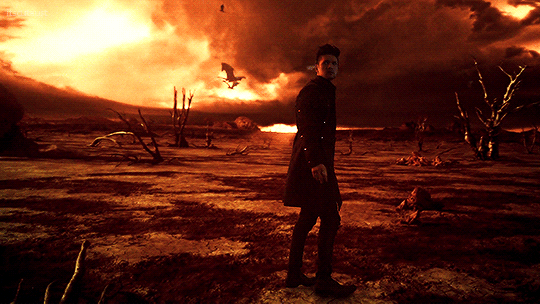
I’m so mad at Freeform & Netflix, I don’t even have the words. It’s corporate shenanigans and power plays, plain and simple. Netflix didn’t get what they wanted, Freeform couldn’t see a good deal staring them right in the frikkin face, so the whole thing blew up with the show being cancelled over sheer pettiness and greed.
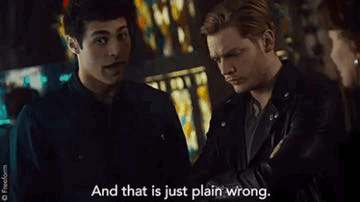
We had SO MUCH MORE to look forward to! And now they’re gonna squeeze everything into 3B and call it done!? Cassandra Clare is still writing! We got 2 new big bads in the Shadow World to look forward to, with Malcolm Fade and the Unseelie King! That was gonna be AWESOME! And Cassie’s releasing an entire book about Malec! THE MATERIAL~~~! U_U
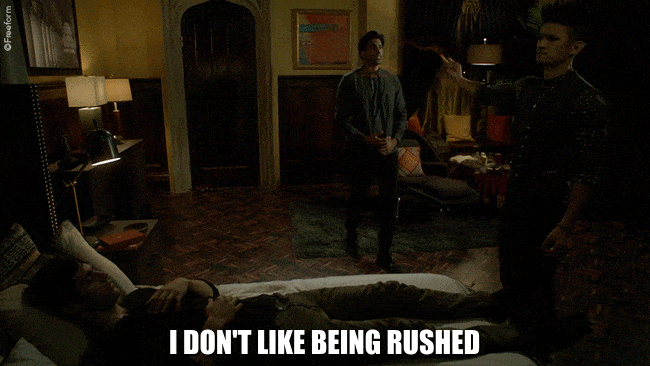
Why can’t Freeform just fork over the licensing rights and give the show over to a company that actually wants to work with it?!
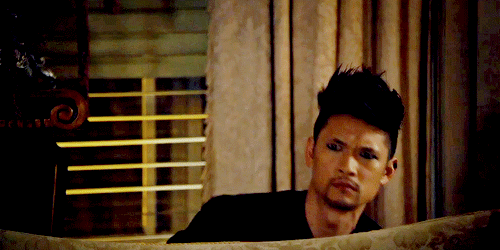
Freeform didn’t promote Shadowhunters at all. I can't tell y'all how many ads I’ve passed by every day while riding the train to for their new show Cloak & Dagger -- I kept mistaking the white-haired girl in the photos for Danaerys Targaryen (which I know they’re doing on purpose, effing click bait). I saw a few for Siren, too. But in all these years though I have NOT ONCE seen a single ad for Shadowhunters while walking around in NYC. NOT ONE.
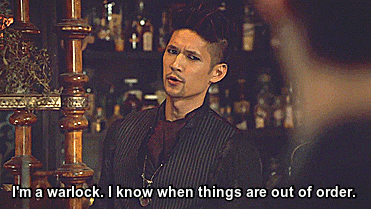
Apparently Netflix & some other networks I think were advertising the show internationally (where the bulk of the fanbase is located), and kudos to them or whatever, but at this point, I don’t even want Netflix to pick up Shadowhunters; they’re the petty arsewipes who pulled the funding in the first place! I’d prefer some other network like Hulu, The CW, or MTV get it, tbh.
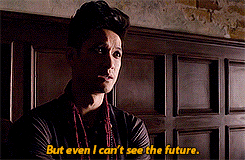
People were speculating that maybe HBO or SyFy could take it, but I don’t really think either of those are viable options. I mean...lbr SyFy’s not exactly known for making that many very good original shows.... >_>
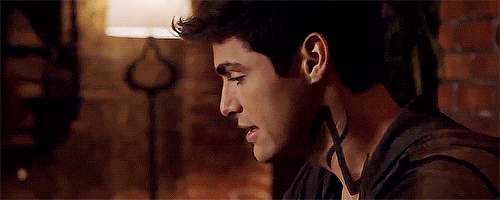
Shadowhunters started off real crunchy in Season 1 (everything from the CG to the directing/writing to the acting was very amateur), and idek if SyFy could keep up the upward momentum and higher quality that Season 2 and especially S03A delivered. And on that same note, I doubt HBO would want it, not when they’ve got powerhouses like Game of Thrones over there doing The Most and making that bookoo money.
But at this point, I don’t even care. Networks save the shows they want to save. Even if a zillion fans scream and shout bloody murder, if the showrunners & co don’t get those coins rolling in, the show will be dropped like a hot potato. Gold. Just thrown down the drain. They don’t care about anyone but themselves.
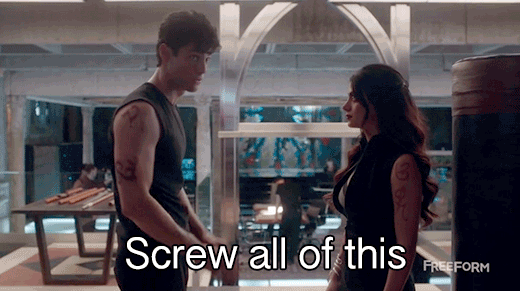
Burke said the network is at peace with the decision ... “They delivered what the fans wanted...I remember being at Comic-Con and seeing the excitement for the show and thinking, ‘This could be our Supernatural,'” referring to the genre staple that the CW just renewed for its 14th season.
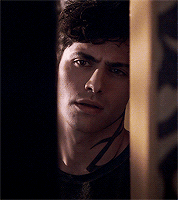
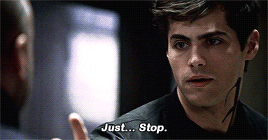
Yeah, YOU THOUGHT. Supernatural’s on it’s 666th frikkin season, meanwhile Freeform couldn't find its own arse with both hands in broad daylight to do anything to keep promoting the show and get the funds and support to renew it for Season 4!
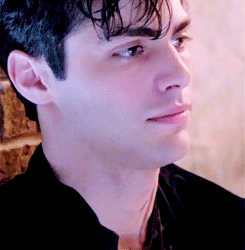
This all just blows my mind though. Shadowhunters is THE most popular (and frankly, only RELEVANT) show on Freeform. It’s been carrying the network this whole time! How do they not have the money!? Malec literally singlehandedly won them a dang GLAAD award!
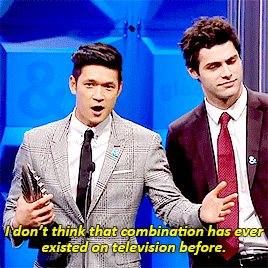
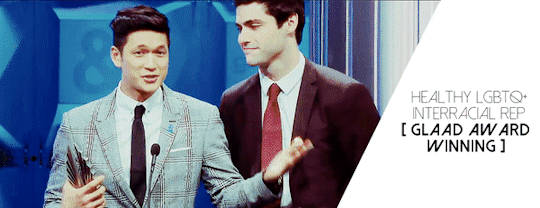
And you know what KILLS ME is that not only are they taking away the show, but they’re depriving me of one of my all-time favorite fictional characters EVER.
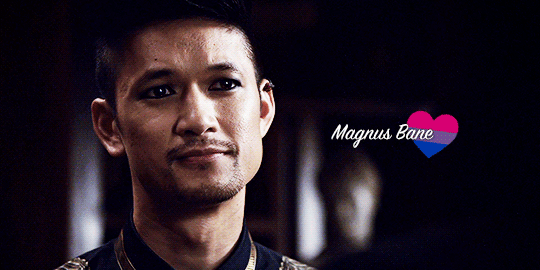
My beautiful, freewheeling bisexual Asian High Warlock of Brooklyn. That flawless bish, that sexy beast, that campy queen, that quite magical wonderful beautiful waking dream of a man.

Harry’s portrayal of Magnus is just dripping in charisma, uniqueness, nerve, and talent; I can’t. And to be BRUTALLY honest, Magnus is the only reason I kept watching the show. Harry Shum Jr was holding it down in Season 1 -- if it wasn't for him acting the roof off in every single scene, I wouldn’t have kept watching at all. Season 1 wasn’t that good, and that’s the T.
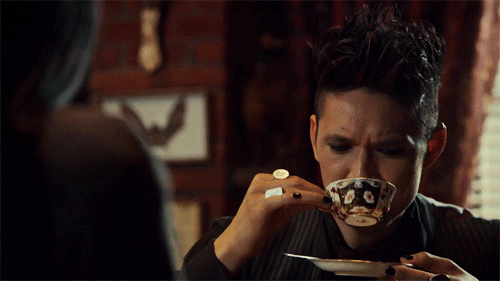
I didn’t like most of the other characters. I hated every single Shadowhunter -- including Alec (Izzy was hot though), and if Valentine wasn’t a racist bigot I’d be on his side and be like: just kill all these Shadowhunters, girl, bye~~!
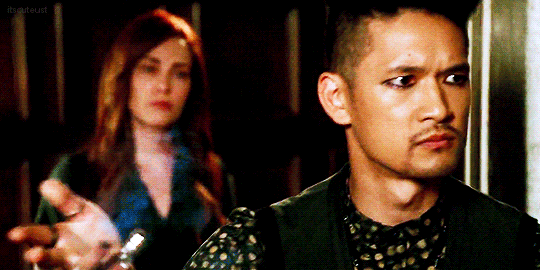
So it just shocks me to my core that Freeform would make a move like this. Malec carried that whole show. No one cares about Clace. Climon was anathema. Sia’s cute and all, but lbr everyone’s sitting on pins & needles just waiting for Sizzy to rise. Only reason I even heard of this show was because a bunch of the fanfic authors & fan-artists I’m subscribed to at AO3 started writing Malec fics, which I was skipping over at first, but then the fandom blogs I follow here on Tumblr kept reblogging The Wedding scene, and I was like WTF IS THIS.
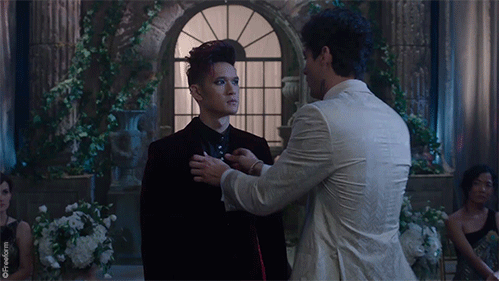
The most iconic episode of Shadowhunters was literally titled MALEC! XD Freeform, you had GOLD! DIAMONDS. Recognition. Representation. Stupid.
This whole cancellation controversy smells like network stunts and shows. They’re doing this on purpose. And during PRIDE MONTH, no less. WOW. How skeevy can y'all get?
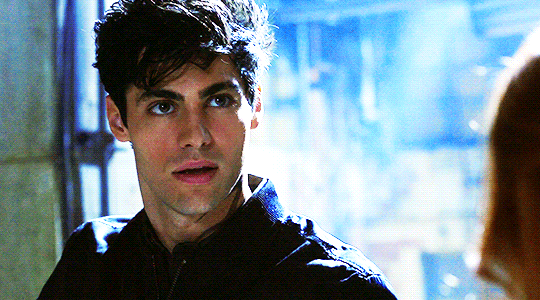
I’m thoroughly disgusted.
So, yeah. That’s the state of things right now. I'M VENTING.
I’m just very upset, because Malec is one of my top favorite ships. But regardless of whether the show is killed off for good or not, I’m gonna keep posting my TS3 Malec Gameplays, the same way I do for my Nagron Gameplays (Spartacus ended in like 2013, and I’m still here, so.... :P ).
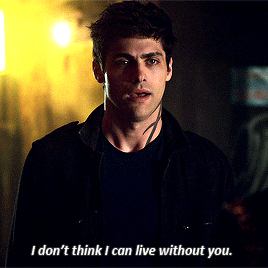
I’m just apologizing in advance to all my followers both here and at my Personal blog and Wishes blog -- I’m gonna be reblogging a lot of posts, to do my part in keeping #SaveShadowhunters trending as much as I can during this year effing long hiatus. So if those who follow me don’t care about all this...oh well.
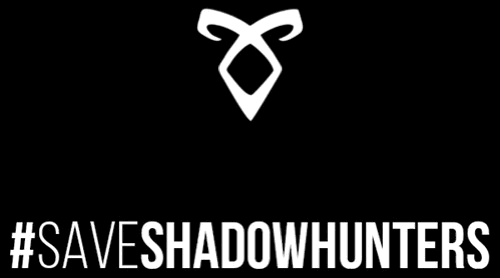
#saveshadowhunters#pickupshadowhunters#shadowhunters#malec#LGBTQIA#replies#RANT ALERT#saltier than a cup of cup noodles
108 notes
·
View notes
Text
#Giveaway + Excerpt ~ A Cowgirl's Dream by Edith MacKenzie... #books #cowboy #romance #readers

On Tour with Prism Book Tours
A Cowgirl's Dream
(Barrels & Hearts, #1)
By Edith MacKenzie
Contemporary Romance, Western
Paperback & ebook, 154 Pages
June 24, 2020
An Aussie cowgirl far from home. A handsome Brazilian bull rider. Can they have a rodeo love story of their dreams?
Frankie dreams of being a champion barrel racer. When the opportunity of a lifetime knocks on her door, she moves halfway across the globe to chase it. After having her heart broken, she’s determined to focus on her ambitions. That means no time for cowboys, even if he is bloody cute.
Luciano is well on his way to getting everything he has ever dreamed of. That is, until an Aussie cowgirl crashes into his world, setting his soul on fire. He knows what it takes to get to the top and Frankie has it in spades. Now, all he has to do is convince her to see beyond the suave exterior and give him a chance.
Finally, Frankie has a shot at the championship buckle, but when photos appear of Luciano on the internet, she has to decide whether to stay or walk away. Is she kidding herself, can she have it all? Can Frankie find her courage to trust in love and still chase her Cowgirl’s dream?
(Affiliate link included.)
Goodreads | Amazon
(Linked to an Amazon affiliate link.)
EXCERPT: To be fair, in her time, Frankie had been to too many BBQ’s. Nothing prepared her for a churrasco. The tables groaned under what appeared to be an endless supply of beef, smoky chicken wings, buttery garlic bread, squeaky cheese, and pork sausages. Her stomach groaned a grumbling gurgle. Gabi laughed. “I think you have a good appetite. Do you want caipirinhas? Or would you prefer a beer?” “What is a caipirinha?” “It’s a cocktail made with Cachaca, lime and sugar. I have to warn you, if you aren’t used to them, they can be lethal,” Gabi stressed. “She’ll be right. If there’s one thing that Aussies can do, it’s hold their booze,” Frankie boasted, careful to omit that this particular Aussie didn’t quite fit the stereotype. “Booze?” “Grog, booze, piss. You know, alcohol. Anyway, that drink sounds great, I’ll try one.” As Gabi walked off to find some drinks, Frankie self-consciously moved to one side of the food table. Curiously, she looked around at the various groups of people gathered. She found herself on the other end of a gaze with frankly the most magnetically attractive man she had ever laid eyes on. The stranger had the swarthy complexion of most of the assembled guests. He gave a slow, seductive smile while he returned her candid appraisal, a hot-blooded gleam flaring in his dark, smiling eyes, the corners crinkling into lines that looked well-used. The man had a smile that would put a Hollywood actor to shame. “Here you go. I should warn you—” Before Gabi could finish, Frankie took the drink from her and drained it. Her regret was almost immediate. No sooner had the fluid hit the back of her throat when it induced an extreme burning sensation. Frankie could only imagine it was how a marshmallow felt just before it turned into a blistered, gooey mess on the fire. At this stage, she wasn’t even sure her esophagus still existed, let alone functioned as she vigorously exploded into a coughing fit. Gabi pounded her on the back while snorting with merriment. Finally, her ability to inhale oxygen was restored, and she wiped away the tears her misadventure had caused her to shed. “I tried to warn you.” Gabi said between bouts of laughter. “I know, but surely some sympathy is in order here?” “None.” Gabi drew in a deep, steadying breath, attempting to subdue her laughter. “Oh, I forgot, Papai wants us to come over and say hi to some people. Apparently, Luciano really wants to meet you.”
Other Books Coming in the Series

(Linked to an Amazon affiliate link.)
About the Author

Edith MacKenzie or Eddie Mac to her friends is an Australian author of sweet and wholesome contemporary cowboy romance. They say in literary circles to write what you know and Eddie has certainly taken that to heart. Before embarking on a writing career she trained horses professionally and brings that wealth of knowledge to her writing.
Now a mum to a boy and girl, as well as wife, she delights with her tales of strong cowgirls and their adventures in finding love. When not weaving the love stories of her characters, she enjoys hanging out with her family and animals, as well as reading, fishing and camping
Just remember once a cowgirl, always a cowgirl.
Website | Goodreads | Facebook | BookBub| Instagram
Tour Schedule

Tour Giveaway
One winner will receive a $20 Amazon eGift Card
Open internationally to those eligible to use one of Amazon's branches
Ends July 5, 2020
ENTER HERE

#A Cowgirl's Dream#Edith MacKenzie#Contemporary Romance#Cowboy#cowboy romance#Prism Book Tours#Hearts & Scribbles
0 notes
Photo

Hey everyone! Today on the blog I have an excerpt post from one of my favorite author’s next books, Chosen. Chosen is the second book in the series, and it takes place in the world of Buffy the Vampire Slayer. Presumably there are spoilers from the first book below this line, so don’t read on if you haven’t read Slayer. Instead, go out and buy Slayer and devour it immediately!
Nina continues to learn how to use her slayer powers against enemies old and new in this second novel in the New York Times bestselling series from Kiersten White, set in the world of Buffy the Vampire Slayer. Now that Nina has turned the Watcher’s Castle into a utopia for hurt and lonely demons, she’s still waiting for the utopia part to kick in. With her sister Artemis gone and only a few people remaining at the castle—including her still-distant mother—Nina has her hands full. Plus, though she gained back her Slayer powers from Leo, they’re not feeling quite right after being held by the seriously evil succubus Eve, a.k.a. fake Watcher’s Council member and Leo’s mom. And while Nina is dealing with the darkness inside, there’s also a new threat on the outside, portended by an odd triangle symbol that seems to be popping up everywhere, in connection with Sean’s demon drug ring as well as someone a bit closer to home. Because one near-apocalypse just isn’t enough, right? The darkness always finds you. And once again, it’s coming for the Slayer.
And onto the Excerpt!
Chapter 1 1
THE DEMON APPEARS OUT OF nowhere. Claws and fangs fill my sight, and every instinct screams kill. My blood sings with it, my fists clench, my vision narrows. The vulnerable points on the demon’s body practically flash like neon signs. “Foul!” Rhys shouts. “No teleportation, Tsip! You know that.” Even while playing, Rhys can’t help but be a Watcher, shouting out both advice and corrections. He’s not wearing his glasses, which makes his face look vague and undefined. Cillian passes him, mussing Rhys’s carefully parted hair into wild curls and laughing at Rhys’s frustration. I take a deep breath, trying to clear my head of the impulse to kill this demon I invited into our home and swore to protect. “It’s just soccer,” I whisper. “It doesn’t matter. I don’t even like soccer.” “Football, bloody American,” Cillian sings, neatly stealing the ball from me. His shorts are far shorter than the January afternoon should permit, but he seems impervious to cold. Unlike those of us who are translucently pale at this point in winter, his skin is rich and lovely. He passes to Tsip. Tsip is a vaguely opalescent pink, shimmering in the sunlight. She paints her claws fun colors when we do manicure nights, and I try desperately not to miss Artemis. I stay rooted to the ground where I’m standing. Tsip caught me off guard, but that shouldn’t matter. I like her. And the fact that I went from trying to score a goal to plotting a dozen ways to kill my opponent in a single heartbeat is frankly terrifying. I can’t get my heart under control, can’t shake the adrenaline screaming through my veins. “Gotta take over for the Littles. I’m out.” I wave and jog from the field. No one pays me much attention. Jade is lying on the ground in front of the goal, the worst goalkeeper ever. Rhys and Cillian are bodychecking each other in increasingly flirty ways. Tsip keeps shimmering and then resolidifying as she remembers the no-teleportation rule. They’re all happy to keep going without me, unaware of my internal freak-out. I’ve deliberately kept them unaware. Things here are going so well. I’m in charge. I can’t be the problem. So none of them know how I can’t sleep at night, how my anger is hair-trigger fast, how when I do manage to sleep, my dreams are … Well. Bad. They don’t need to know and I don’t let them. Except for Doug, his bright yellow skin almost nineties Day-Glo levels in the thin winter sun. Annoying emotion-sniffing demon. He watches me from our goal, his nostrils flared. I can’t lie to him the way I can to everyone else. I shake my head preemptively. I don’t want to talk about it. Not with him. Not with anyone. There’s only one person I want to talk to about it, but Leo Silvera’s not exactly available. I do a quick sweep of the perimeter of the castle. Leo loved me. Check the woods. Leo betrayed me. Check the locks on the outbuildings. Leo saved me. Pause and just listen and look, feeling for anything pushing against my instincts. I let Leo die. I keep walking. Leo loved me, betrayed us, saved us, and then died, and I can’t be sad without being mad or mad without feeling guilty or guilty without feeling exhausted. Past the meadow, the tiny purple demons are taking turns pushing each other on the tree swing. That, or they’re trying to push each other off. It’s hard to tell with them. With nothing else needing my attention outside, I end up at the front stairs to the castle. “Hey, Jessi.” I wave halfheartedly to our resident vengeance demon. She’s leading the Littles through an elaborate game of hopscotch. George Smythe, bundled up and barely able to see under a floppy knit hat, is shouting each letter as he lands on it. “G!” “What?” Jessi snaps at me. “E!” “I can take over for you.” I find the Littles soothing. They might be three incredibly hyper children constantly needing snacks, entertainment, and education, but at least none of them ever randomly triggers a kill reflex in me. “A!” “No,” Jessi says, her voice as sweet as summer fruit. “G-E-what-comes-next …” “O!” George course corrects, wobbling on one short leg before jumping to the required O. “Good! Oh, you’re so clever. Priya, how are your letters coming?” Priya, a tiny moppet with shiny black hair, is crouched over her own chalk work, which looks more like Klingon than any alphabet I’m familiar with. “Very good, darling! You’re really working hard. Hold the chalk with one hand, like we talked about. Thea, love, fingers out of noses, please—that’s a dear.” And to think, we once considered these children the entire future of the Watchers. I watch as Thea spins until she falls flat on her bottom. Actually, the future of the Watchers is pretty accurately captured here. I pat Jessi on the arm. “So, you can take the afternoon off.” Everything sweet in Jessi’s voice turns to ice. “I said no. I don’t trust you with these three precious wonders. We have an entire day’s curriculum to get through, and we haven’t even done story time yet or finished our art projects. Are you going to do any of that with them?” “I—I could?” “You were going to turn on a cartoon and read while their fertile minds were filled with weeds.” Jessi doesn’t have her powers anymore, but I’m pretty certain if she did, I would have been vengeance-demoned right into something oozing and seeping. She’s already turned away from me and back to her three charges. Her whole face is full of gentle warmth and absolute love. “R!” George declares, hopping emphatically down on it. Jessi claps like he’s cured the common cold. Thoroughly dismissed, I skulk up the stairs and into the castle. Jessi could at least pretend to be nice. She’s got a lot of enemies out there—vengeance is a nasty cycle—and without her powers she’s vulnerable. We took her in despite her obvious hatred for everyone over the age of ten. There was some debate, given her history, but my mom argued in her favor. It’s a little easier to forgive a vengeance demon who made it her immortal life’s work to avenge children than a vengeance demon who specialized in, say, fantasy league sports rivalries. But Jessi’s dismissal leaves me with nothing to do. I used to have my medical center and my studies, all my little Watcher duties. Even with so few of us, the castle ran as near to Watcher traditions as we could manage. Which in retrospect was absurd, since we didn’t have a Slayer and weren’t actually doing anything Watchers should. But now everything has changed. We lost Watchers—Wanda Wyndam-Pryce, sulking off into the sunset, good riddance. Bradford Smythe, murdered. Eve Silvera, secretly a succubus demon and murderer, smushed thanks to my actions. Artemis, off to find herself with her awful girlfriend, the thought of whom makes my jaw ache as I grind my teeth. And Leo, who didn’t warn us what his mother was (and what he was) but fought her to give us enough time to stop her from opening a new hellmouth. And now we have a Slayer, again some more, thanks to Leo somehow returning the powers his mother stole from me. I don’t know how he did it, and it hurts too much to think about, like everything else. I spend so much of my days trying not to think, and it’s harder than it should be. I used to believe that all Slayers did was act without thinking. I was wrong, but I wish it were true. There’s so little acting and so much thinking these days. It’s good. It’s all good. It’s good, I remind myself, over and over like a chant. Sanctuary, what we decided to turn our castle into, is just starting out, but it’s exactly what we dreamed it could be. We’ve taken in demons who had nowhere else to go. We’re keeping them safe, and ourselves safe, and we’ll keep looking for those who could benefit from the generations of knowledge and abilities we have. We’re protecting, not attacking or destroying. Between our new demonic additions and existing Watchers, everyone has tasks and times to do them. It’s more work than anyone anticipated, keeping everyone taken care of and fed, making sure the castle runs like it should. But so far everyone is happy. Everyone is safe. I sink down against the wall, feeling the cold of the stone radiating outward. The unpellis demon, all four gentle eyes soft and brown and hopeful, snuggles up to my side like a dog. It’s more animal than human in nature, nonverbal, and still recovering from its frequent de-skinning treatment in Sean’s demon-drug manufacturing scheme. I saved Pelly from that cellar. I didn’t save everyone, though. I wrap my arms around Pelly and close my eyes. Everything is exactly what we dreamed it could be. Except I feel Leo’s loss everywhere, and I miss my twin, Artemis, with a constant, physical ache. And, worst of all, with enough time after Tsip surprised me to calm down and remind my body there’s no danger … I still feel like killing something.
_______________________________________________
And now for even better news...Chosen is on sale on January 7th!!! So go to wherever you buy your most anticipated reads and make sure Chosen is on your list. I will have a review of this one up **hopefully** within the next week or so.
0 notes
Note
Hello! Since you read a lot, I was wondering if you could help me out. I'm going to be studying advanced higher english this year (a Scottish qualification) and part of the course is writing a dissertation on two pieces of literature. We need to start to think about what we want to do for our dissertations now and I'm, quite frankly, a bit stuck. I plan of doing two novels but I have no idea what to choose as my knowledge of different literary works is limited to say the lease. The books (1)
Need to be of ‘appropriate’ difficulty and the two need to have something such as a theme in common and then the comparison of that theme within the two novels will essentially be what the dissertation is. For example, last year someone did 'A Thousand Splendid Suns’ and 'The Kite Runner’. Other books people chose include: 'The Handmaiden’s Tale’ and 'Jane Eyre’ (there is a word limit for the dissertation though and we are being advised to choose things that aren’t too long). Our teacher is (2)
Also banning us from doing anything that someone did last year. Generally, people often choose things like '1984’ as well but I want to do something more unique. I think my issue is that I don’t have a starting point such as a suitable book that I already love so I was wondering if you would be able to suggest to me some titles that I would be able to look into that you’ve enjoyed or have interesting themes or characters - I’m open to anything really. Thank you. (3)
Thanks for sending me these asks; it absolutely makes my day when people come to my inbox looking for recommendations.
The first suggestions that come to mind are In Parenthesis by David Jones, and War Music by Christopher Logue. War Music is a retelling (as opposed to an actual translation) of books 1-4 and 16-19 of the Iliad; it is written in verse. In Parenthesis addresses war in all its various bloody nuances; it’s not quite an autobiography, I think it’s actually classed as fiction, but the author fought in WWI. It’s prose, but often Jones switches to verse for some of the more chaotic scenes, and I think it’s actually very effective for the battle scenes where everything is sort of all muddled together, some thoughts almost half-finished, actions just cutting off. I really enjoyed it; it was a very unique experience, and he could turn a damn fine phrase.
They’re also both pretty short; In Parenthesis is 187 pages; War Music 215, so you’re not committing to something huge if they’re not to your taste.
You can check out those two if you like, and let me think on this a bit more; I can reblog it later with more titles (I’ve got to get started on my workout at the moment). I do tend more toward doorstoppers, so trying to recall some favorites that aren’t 1400 pages is a decent challenge for me. lol
3 notes
·
View notes
Text
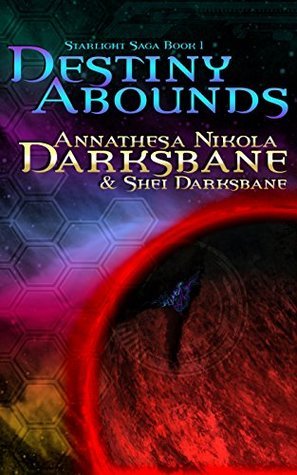
Destiny Abounds by Annathesa Nikola Darksbane and Shei Darksbane Series: Starlight Saga: #1 Read: February 2016 Rating: 3.75 Stars
To start with – if it hadn’t been for the fact that I had already read, and enjoyed, every other book written by this pair of authors (not including a short story, which I haven’t read yet), I probably wouldn’t have given this book here a third chance. Yes, third. First doesn’t really count – it was just a causal like look over the book after completing the second book by this pair. Second one though – that one counts, it does. Since I started, and then fled the book. I just . . .. Well, that was longish ago. Third time was this time so I’ll just relay that one.
To a large extent, it probably would have been better if the book had started with any other character instead of the captains. I hadn’t actually realized it until stumbling through it and getting to other points of view, but the first, the captain’s point of view is that way on purpose. It’s off putting and annoying as hell though. Part of the reason why I didn’t immediately ‘get it’ is all the ‘errors’. Like the repeated use of words and phrases in, the supposedly, ‘non-point of view’ section. As in times when the phrase ‘it was’ was repeated. ‘The dog it was it was very large.’ (not an exact quote) or times when the word ‘the’ was oddly used. Mostly, though, it was the very unnaturally disjointed flow of the captains sections. I literally had to read the first page about 12 times just to figure out what the bloody hell was being said. It wasn’t that it involved difficult words, or the like, it was just so bloody weirdly worded. Took me getting to other points of view and seeing how smoothly, for the most part, those sections were, then getting back to the captains and again encountering the rough disjointedness of the captains to finally realize that her sections were that way on purpose. Once I realized that, everything began to become easier to read.
Right, so. I probably would have noticed, hmm . . I’m fairly certain I would have noticed . . . the similarities between this book and ‘Firefly’ (the 2002 show that was on Fox briefly). Well, at least vaguely. For the most part, only one of the characters has something of a 1 for 1 match. All the rest are vague. To a large extent, from the little given on the TV show, and in this book, Inara Serra (the ‘companion’ on the show), and Kalah Sirrah appear to be roughly similar characters. The rest, as noted, are mostly pushing puzzle pieces around, and pounded some pieces where they probably don’t really go.
Also on the ship, Branwen Hawke, Captain of Destiny Abounds, has some rough similarities with Captain Mal Reynolds of Firefly. Well, both had military backgrounds that both were trying to put behind them. Both captains of a starship. And . . . that’s basically it in similarities. Not really similar, eh? Oh, and both using ships uncommon – though the Firefly was a cargo ship much outdated to the time Captain Mal flew it, while the Destiny Abounds being a rather technologically advanced spaceship.
Prisoner 286 has some vague similarities to a combination of two Firefly characters - Jayne Cobb/River Tam character. 286 has some super advanced fighting skills that seem kind of magical, somewhat like River, has some vaguely anti-social tendencies somewhat like River (though more how, at times, River might suddenly go from looking like she’s sleeping to running around ripping things apart); but also has the ‘doesn’t give a shit’ vibe that Cobb has, is as talkative as Cobb is, and is something of a bully like Cobb.
I was thinking Zimi must match up with Dr. Simon Tam, from Firefly, but then I thought more about it and thought that I might just be going for ‘medic on Destiny Abounds’ and ‘doctor on Firefly’ as basis. Like several others, Zimi appears to be a combined character. Fitting some of Shepherd Books gibberish and . . . gibberish into her character, combined with the medical part from Dr. Simon Tam (though Simon was a top medical professional, while Zimi is more self-taught –still, Zimi is much more skilled than you’d expect for someone basically self-taught), and the fighting skills of Simon (somewhat ineffectual (at least during one fight), desiring to do the right thing but might accidentally shoot one of the crew while trying to shoot an invader; so unlike Shepherd Book, who gave off the vibe of a pacifist type, but actually had been a skilled intelligence officer at some point).
The pilot of Destiny Abounds, Merlo, has an obvious match-up with the pilot on Firefly, Wash. Merlo, though, seems a lot more military than Wash (though both had/have military training). I’d been thinking that Merlo might be some combo of Zoe Washburne and Wash Washburne, though only because Merlo seems to want to find the military option in every situation, while Zoe was always ready for the military option, though not necessarily leading with it. Truth be told, other than having military training and being super good at piloting, there really isn’t that good of a match between Merlo and Wash (or Zoe). I mean, Wash liters stuff like dinosaurs figurines all over the place, while Merlo has no use for debris. They are barely similar. Just job title.
Also, somewhat obviously, the engineers on both ships vaguely match up. Vaguely. Kaylee is kind of socially awkward while being a brilliant engineer, like Mr. Leonard. But Mr. Leonard seemed scared of his own shadow, while Kaylee seemed to be more of the socially awkward, rather roll around in grease fixing things than bouncing around a party type.
And, right. Quite frankly, there’s a big chance I’d not have tried to ‘smush’ the two things together. This book and Firefly, if I hadn’t seen it in reviews. Hell, I could probably attempt to ‘mush’ any old show with the book. Like, say, Stargate. Branwen is kind of like Jack O’Neill – military veteran, kind of sits back watching the others do their thing, but ready to step in at a moment’s notice to take command. And, um, Merlo . . . um . . is kind of like the early brash Major Carter before she got seasoned. And . . . um . . . Mr. Leonard is like Sgt. Harriman, there to keep things running, but is on the side, watching – Mr. Leonard because he’s really really shy and fragile like, and Gary Jones because he’s a bit player with a few lines of dialogue (though in 112 episodes) …. Yeah, okay, I can’t match up Stargate with this book. Hehe.
Well, got distracted there with my little Firefly diversion. There are at least 5 points of view shared in this book. The main ones are Branwen Hawke, Merlo, Kala Sirrah Nazai, and Prisoner 286. The fifth involves a few times that Mr. Leonard gets to pop his head up glance around, meerkat-like. Hmms. There’s only one other passenger/crew member – Zimi Praff. I can’t recall if Zimi has any time taking over things.
The plot, to a large extent, seems designed to show how each crew member ended up aboard the Destiny Abounds starship, including how the ship itself got its name (it opens the book nameless). At first the ship consisted of Branwen as captain and Mr. Leonard as engineer. However they ended up on or with the ship is not mentioned.
Branwen Hawke is the captain but doesn’t really know much about technology. Apparently really old, but she dodges the age question as well as she can. Everyone else, unless I’m forgetting something, get described as being ‘young’ – many seeming to be described as being around 17 years of age or thereabouts (not sure why the book ended up being overrun with kids, but . . . whatever; though these are mostly observations made by other people gazing upon the characters, not internal thoughts or overt conversation – the young age, I mean). Mr. Leonard, as mentioned, is the engineer. He gives off a vaguely ‘I’m actually a robot pretending to be a human’ vibe, but the hints that are dropped probably leads me in a different direction. <spoiler>There is a super advanced civilization mentioned in the book on a planet. No one lives in this civilization except for children and either an A.I. or with A.I.’s. The artificial intelligent critters guide and protect the children. There is a relatively high likelihood, as expressed in the book, that the children are children because they had been regressed – had been adults but they themselves did something to themselves to move them back to the age of children – because of how fun it is to be a child with no responsibility, etc.. Well, the hints that are dropped seemed to indicate that Mr. Leonard might be somehow connected to that civilization. I might be reading into things, though so . . .. Either a kid who wanted to ‘play’ and explore – and therefore allowed himself to grow to adult size, or an A.I. from this civilization.</spoiler>
Very quickly the ship adds a pilot – Merlo. Quickly as in almost immediately after the book opens. Merlo is a young woman who has spent most of her live being trained to be a pilot and is therefore super advanced in piloting. She has also been trained in military matters. Most other training, unless related to piloting, has either not occurred, or been of lesser importance. Mostly not occurred.
The three member crew bump around the ‘clusters’ carrying things here and there until they reach a specific planet. On this planet they need to deliver some medicine. While delivering the medicine they are attacked. Injuries occur, etc. etc. (I don’t want to give everything away here), and they end up being worked on by a medic. Named Zimi Praff. Shortly thereafter Zimi joins the crew.
Meanwhile, as the ship has bounced around, Prisoner 286 and Sirrah have been having their own story unfold (as in, they are traveling down the same story path, while the ship crew is on a separate path). Eventually 286 & Sirrah’s paths cross that of Destiny Abounds and they board as passengers. Because Destiny Abounds is super quick.
And so, once everyone is on board the ship darts around speedily doing the business required by Kala Sirrah. Much time in space occurs. Some on planet. Battles occur, some relatively massive. All planet side (a comment is made by Merlo while gazing upon, the as yet named Destiny Abounds, about how it looked like (a) a super advanced ship, (b) that had no obvious weapons; since that comment was made by Merlo who had no clue about that ship, or its capabilities, the question about whether or not the ship actually had weapons or not is still up in the air – weirdly).
Enjoyable book. Sucked me in, spit me out, and now I write this, whatever this is, here. Just like the other series I’ve read by this author pair, books and short stories are already named and mentioned to be releasing soon. Soon was last year. Something occurred which adversely impacted their writing plans, so I’ve no idea if this first book in a series will actually end up being an orphan book. Three books and two short stories all got released in 2015 – normally I’d not make comments like I made except for the fact that they had made this website that seemed to be tracking their work and putting up blog posts. Everything kind of froze, though, with no new information, and the progress bar on the writing locked at a certain number (19%?) for something like six or so months.
Regardless, I look forward to further adventures in this series and in the Dakota Shepherd series.
Review Written: February 18 2016
#Lesbian Fiction#Lesbian Science Fiction#Science Fiction#2016 Reads#Book Review#Lesbian Book Review#Kindle Unlimited#3.75 Stars#Starlight Saga#First in Series
0 notes
Text
Gerry Burke: Author, Humorist, Racehorse Breeder
Veteran iUniverse author Gerry Burke talks about his novels, characters, and thoughts on writing.
I have just had business cards printed. I always visualize the cover of my new book on 80% of the available space. The book is called Be Dead and Be Damned, and it is a little confronting for people who receive my card after meeting me for the first time. After all, I appear to be such a happy fellow.
Certainly, the cover illustration is also rather confronting and when you take-in the subtitle, there is no guessing what the book is about — Murder with Malice in Melbourne. I suspect my editor threw up her head with frustration; bloody Gerry with his alliterations again. I can’t help myself.
Given that I have churned out ten volumes to date, it is surprising that so few relate to my home town in Australia, but this one does. I have pulled-back on the humor a little (but not completely) in order to write a whodunit that I hope is mystifying and absorbing. A public figure is murdered in a public place and the usual suspects are trotted out. However, the local Johnnies get more than they bargained for and complications arise.
I have set the drama in the sixties and entwined historical fact into the fiction. It was the time of large-scale Italian migration to our shores and the establishment of the mafia in this country. I can say that lawyers and journalists don’t come out of my book very well, but you wouldn’t expect them to, would you?
My Other Books
Sheepishly, I must confess that I did a bit of pontificating in my first two books and fantasy was in there, too. Some local editor said I read a bit like David Sedaris and I rushed to find out who he was. He didn’t have a big profile in this country. Then along came the protagonist I had been intuitively nurturing for years; an ageing chick magnet, who was a cross between James Bond and Maxwell Smart.
Patrick Pesticide aka Paddy Pest took over my life, and insisted on writing all the books himself. Initially, they were all short stories, which he claimed were better than mine and included more sex. I had to tolerate him because he picked up a few awards but, eventually, I penned Paddy’s People, which was an exposé of all the peripheral people in the crime-fighter’s life. The book won a bronze medal for best fiction in Australia and New Zealand.
Being ex-advertising, I was used to 30 and 60 second commercials and the prospect of an 80,000 word tome was daunting. Nevertheless, I got around to it and Paddy appeared in my first two novels. In The Snoodle Contract, he saved President Gus Snoodle’s life and they became lifelong friends. As you might expect, from that point on, Pest was unbearable and I decided to take a holiday from crime.
I have never had any interest in science fiction but I decided this was the way to go; just for a change. The Replicants, has been called a send-up and a scathing satire and received great reviews. One of them I couldn’t have written myself.
I’ve listed some review excerpts for my books. It makes me feel better about myself and might convince you to try one of them. You can see my whole book list on my website, with the award annotations.
Burke’s prose fires one-liners and salty jokes at machine-gun speed. He has a well-furnished mind, an ingenious intellect, and a prodigious vocabulary dedicated to making readers laugh. — Joe Kilgore, US Review
I was completely absorbed in the narrative, in the author’s unique, inimitable style, and the writing that conjures up powerful images in the minds of readers. I read this novel from cover to cover, and was utterly immersed in the action. — Christian Sia, Readers’ Favorite
Pest On The Run was a pleasure to read and I am happy to rate it as 4.5 out of 5 stars. — Raymond Mathiesen, Raymond Mathiesen Reviews
5 out of 5 stars for The Hero of Hucklebuck Drive by Gerry Burke. — US Review
Gerry Burke evinces an engaging sense of humor with many wry asides that may remind some readers of Peter DeVries’s comic novels. –– Barry Lyons, IndieReader
My Other Interests
Everyone starts somewhere. I began my working life as an accountant for a mining company and spent time in New Guinea. Then my advertising career began as a copywriter and ended as a Creative Director and flim flam man, with time spent in Indonesia and a number of Australian cities. I was unmarried, wealthy and only partially subservient to the ponies. I then dipped my toe into the racehorse breeding business and have had an interest in over twenty thoroughbreds. I am still unmarried but no longer wealthy.
I couldn’t afford a smart car or a yacht, so it had to be golf or writing. I’m hopeless at golf, so here I am, ten books later, and possibly one of iUniverse’s most prolific yarn-spinners. I always look forward to my editorial evaluation because, no matter how much experience you think you have, these editors know more. Being an advertising creative, I also look forward to the design process and the guys and gals rarely let me down.
My Other Thoughts
I know it is always expected that a guest author should elaborate on his influences and proffer advice but this is sometimes difficult. As you have read, there have been comparisons made regarding my style but I have not been aware of these people and, quite frankly, one probably picks-up skills unconsciously. Did I read too many Mickey Spillane paperbacks; or did I harvest dialogue from a Humphry Bogart movie? If so, Raymond Chandler gets the nod.
What can I say to prospective authors? It’s a hard grind. It probably will not come easy. You will always have doubts concerning the quality of your work. It’s best to start small and build-up. My first book was almost a pamphlet and that’s because I didn’t know any better. Each volume became bigger than the previous and, with it, I was able to overcome some of the mistakes and inexperience of the virgin author.
Gerry’s website can be found at www.gerryburke.net .
Make sure to check out the iUniverse site for more advice and blogs, as well as iUniverse Facebook and iUniverse Twitter. For a FREE Publishing Guide, click here!
0 notes
Text
2016
The End of an Era … for White Males |
http://foreignpolicy.Com/2016/01/25/the-end-of-an-era-for-white-males/
As demographics change, so does the definition of privilege.
BY DAVID ROTHKOPF
David Rothkopf is visiting professor at Columbia University's School of International and Public Affairs and visiting scholar at the Carnegie Endowment for International Peace. His latest book is The Great Questions of Tomorrow. He has been a longtime contributor to Foreign Policy and was CEO and editor of the FP Group from 2012 to May 2017.
JANUARY 25, 2016
White men have had a great run. From the rise of the Greeks to the birth of Western-based global empires, they have controlled much of the world or sought to: So much of history is a consequence of decisions made by—and at the behest of—the white guys in charge. Several factors are contributing to making this historic moment a watershed in global history. First, there is the rise of the emerging world, notably the economies and societies of Asia. While the planet has always been home to great nonwhite civilizations, such societies have ebbed and flowed in relative importance. Today, it is clear that these emerging societies, namely China and India, are on the rise. So too—thanks to economic and political reforms, technological and scientific progress, and the advent of the connected world—are other great and rich cultures from the Middle East to Africa.
In addition, millennia of repression of women’s rights are coming to an end. Not fast enough. And not everywhere. But in much of the Western world, once male-dominated domains are now populated by more women than ever before, and this trend shows no signs of reversing—thankfully. Not only that, but around the world women are empowering other females, including girls, to lead in technological fields in the Digital Age. Quite simply: It now seems to be common sense that no society can thrive if it fails to tap the intellectual, economic, creative, and spiritual resources of its entire population. Finally, thanks to the mobility revolution of the past century, flows of refugees and migrants of all kinds have shifted the demographics of societies and—protests and unease aside—they have proved essential to fighting the demographic trends, such as aging, that have put many advanced societies at risk.
Inequality, injustice, and, frankly, fatigue have led populations to seek other choices. Further, the societies that have given the white man his greatest influence in the world—those of Europe and the United States—are struggling in key respects to maintain their global influence. Economic pressures weigh on them. Political divisions are a drag on their growth and ability to act.
As history has illustrated, it’s hard to stay on top for an indefinite period.
The result is that the status quo of the past several millennia is going to undergo a profound change. In Europe alone, the influx of migrants and refugees is already producing irreversible demographic shifts—a great blending of cultures. But by mid-century in the United States, the former majority population will be a minority: The majority, according to demographers, will be nonwhite. By that time, Europe will include massive populations from Africa and the Middle East, as well as Asia. This is to say that by 2050 white men will be the ones checking the “other” box on census forms.
In fact, it is this idea of “otherness” that is going to undergo the greatest change. A current subject of hot debate, such othering has been used by some as a tool for fear-mongering against migrants, immigrants, and refugees—an approach linked, of course, to nothing but ignorance and intolerance. (Attacks on America’s first black president had similar origins and took on a similarly ugly tone.) Whether the threat is one associated with Islam or extremism or simply economic competition within a country, the reality is that the expressed fears are way out of proportion with the actual, manifested threats.
A shrink I knew once said that if a reaction is out of proportion with its alleged cause, then there’s a piece of the story that has been omitted. In this case, the politicians in America and Europe who spew nationalist bile and fan the flames of anti-immigrant furor are tapping into a growing if unconscious cultural recognition that time is running out on what has been the world’s most privileged ethnic class.
Of course, human mobility is not something to be fought, but rather something to be embraced. While belonging to a community is wired into our DNA for reasons linked to the survival-based social units of our most ancient ancestors, the story of civilization and progress has been one about the blending and reblending of those units.
There are two key lessons here. The first is that, given the fact that civilization is a safer, happier, healthier, richer, wiser place today than it has ever been, the sharing of ideas and values and cultures, it seems, has actually been for the better. For the United States, this is illustrated in its history: Since the early 19th century, new groups have entered the country and have been resented and resisted—the Irish, Italians, Eastern Europeans, Jews, you name it. Yet over time each group has made huge contributions to the United States, a country that only grew stronger with each wave of new blood and new ideas.
The second key lesson is that there is an alternative to “other” and that is “all.” Rather than focusing on our differences as the smallest and most dangerous of our political leaders have done, the real leaders for this new era will distinguish themselves by focusing not just on the social diversity that makes great nations, but on the truth and wondrous benefits of the diversity that actually lives within us all.
As the nationalists, white supremacists, and idiot hordes who follow them have sown seeds of division in the wake of new human flows across borders, the tragic irony has been that they, in fact, have ended up embracing precisely the same kind of intolerance that is the stock in trade of their avowed enemies. What we need instead are those who will stand up and say, “No. You have it wrong. Diversity is not the threat. It is the answer.” That is, in fact, what has made America and every diverse society great. To be sure, we should not—not for one minute—lament the passing of the white-male era, for there is at least a glimmer of hope that soon to come is the era of “all.”
Illustration by Matthew Hollister
OBSERVATION DECK Farewell to Arms Has American fiction lost its political edge?
BY ADAM KIRSCH
Adam Kirsch is a poet and critic. He is the author, most recently, of Rocket and Lightship: Essays on Literature and Ideas.
JANUARY 22, 2016
In an era of ideological polarization and violent extremism, American readers are showing a hearty appetite for nonfiction books that deal with urgent social and political issues—works such as Ta-Nehisi Coates’s Between the World and Me or Jill Leovy’s Ghettoside, a report on the murder epidemic in South Los Angeles. Yet some literary critics are lamenting that Western novelists are sitting out the wars. Instead of confronting the world as it is, they are retreating into imaginary realms of their own.
Last May, for example, British-born writer Aminatta Forna delivered a speech in Boston in which she asserted that writers from Turkey, Bosnia, China, and Russia addressed the politics and current events in their countries “because it mattered.” It was impossible to live in these places, she argued, and not realize that the destiny of individuals was shaped by history. By contrast, she said, “a Western readership tends to be far more interested in the interior worlds of writing and reading. Writing is perceived as a private battle with the individual consciousness.” American novelists, in her view, set the aesthetic in opposition to the political, afraid to let the big, messy world invade their walled gardens. It’s true that most American novelists are not writing works like those of John Steinbeck, Upton Sinclair, or Ernest Hemingway—authors who confronted poverty, corruption, or battlefield carnage with realistic depictions of events that they witnessed. But this doesn’t mean that American writers have abandoned political fiction—what critic Lionel Trilling once described as the “bloody crossroads where politics and literature meet”—or that they are indifferent to the world at large and their place in it. Rather, they approach these subjects with a humility born of the knowledge that literary fiction, in the United States today, is the concern of a small, generally like-minded readership.
A literature that recognizes itself as disenfranchised, powerless to shape public debate, will approach politics in more idiosyncratic ways.
The fact is that, ever since planes crashed into the World Trade Center, American novels have been unable to avoid politics, and novelists have provided crucial insights into the political temper of the moment. Jonathan Franzen’s Freedom, one of the most acclaimed and best-selling literary novels in the past 15 years, is explicitly about the Iraq War, which he portrays as morally corrupt, and the environmental movement, which he sees as a noble if likely doomed effort. Franzen, however, is an exception. For the most part, when American novelists address political subjects today, they do so not through realism, but through flamboyant, genre-bending fiction.
This approach flourished in the wake of the 9/11 attacks and the 2008 financial crisis, when what had once seemed to be unshakeable pillars of American existence—physical security, economic prosperity, world primacy—began to teeter. A future historian who wanted evidence of how these events affected the American psyche would have plenty of novels to choose from. In Gary Shteyngart’s Super Sad True Love Story, for instance, a near-future America is embroiled in a losing war in Venezuela and is so crippled by debt that China has taken over the economy. The lovers at the center of the book are both first-generation Americans—Lenny’s parents are from Russia, Eunice’s from Korea—but they live in a country that is no longer rich or powerful enough to make their American dreams come true.
By unwriting the classic immigrant story in this way, Shteyngart gives a powerful sense of American loss of confidence—and that’s even before he depicts the Army massacring civilians in Central Park. Shteyngart’s technique is to take real political and economic trends and blow them up to cartoon size, which makes them both less threatening and easier to perceive. He is far from the only writer to address real-world political anxieties in this way. Jonathan Lethem does something similar in Chronic City, which depicts a New York City where a permanent fog has settled over Wall Street and residents are terrorized by a wandering tiger. In Nathaniel Rich’s Odds Against Tomorrow, the city is destroyed by a massive flood; in Colson Whitehead’s Zone One, it is overrun by zombies. Claire Vaye Watkins’s highly praised new book, Gold Fame Citrus, gives Los Angeles the same treatment, imagining a city obliterated by drought and desertification.
These novels don’t document political events in a directly reportorial way, as some American authors have in the past and many writers elsewhere still do. But it would be a narrow definition of political writing that dismisses such nightmare visions. Whenever a writer is engaging imaginatively with the state of the world, she is writing politically, even if she never uses the words “Republican” and “Democrat.” So much is clear in quieter novels like Teju Cole’s Open City, which follows a Nigerian-born doctor in his wanderings around New York City and Brussels, and Ben Lerner’s 10:04, whose autobiographical narrator lives through Occupy Wall Street and Hurricane Sandy. Both of these books are narrowly focused on the experience of one introverted and intellectual protagonist, yet they show how the big events of the times inevitably color our private lives.
In truth, this is the way most Americans actually experience politics today: learning about war, displacement, and climate change at a remove, from TV and newspapers; dreading disasters that loom just over the horizon but never quite arrive; and feeling acutely their individual powerlessness in a mass democracy, where the voice of one person, no matter how impassioned, seems helpless to effect change. In writing about politics and history as they do, American novelists are not shirking their responsibility, as Forna and other critics might suggest; they are producing a faithful record of how it felt to live in their time and place.
Readers of the future who want to understand how Americans experienced this age of terrorism, war, and ideological mistrust will be able to turn to fiction for insight. They will find that, in America today, the crossroads of literature and politics is not as overtly bloody as it once was, but that it is still a dangerous place.
Illustration by Alvaro Dominguez
About David Rothkopf
David Rothkopf is visiting professor at Columbia University's School of International and Public Affairs and visiting scholar at the Carnegie Endowment for International Peace. His latest book is The Great Questions of Tomorrow. He has been a longtime contributor to Foreign Policy and was CEO and editor of the FP Group from 2012 to May 2017.
@DJROTHKOPF
Aug 19th, 2017 1:35:11pm
0 notes